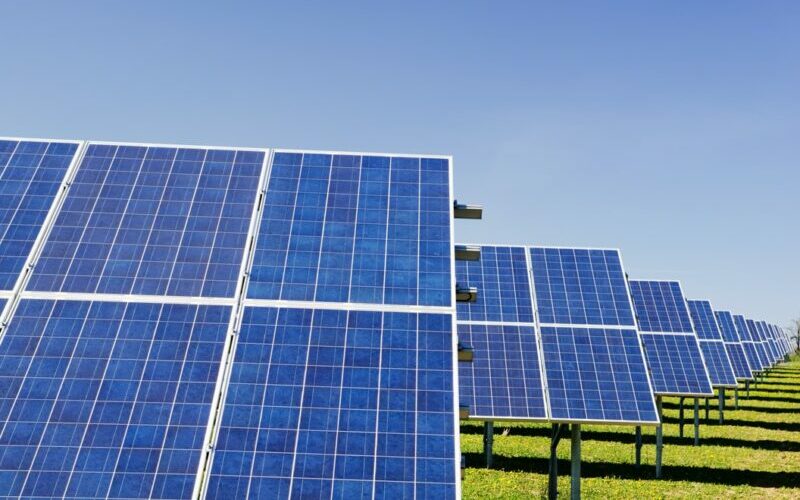Jobs and a just transition can deliver climate ambition
November 24, 2021
After COP26, global social ambition will have to match that for the climate to secure a liveable world for all.
The science tells us and the increasing severity and associated destruction of extreme weather events confirms that we are in a race against time to secure a sustainable future for both people and planet.
Clean energy is the foundation of vital transitions in heavy industry, transport, construction, agriculture, our cities and our home. We must acknowledge the fears of workers in coal communities, now that exit dates for coal are being set and transition plans for fossil fuels put in place.
Trade unions and their international and global federations demand climate ambition is matched by ajust transition. Workers and their communities must not be left stranded.
AtCOP26just transition has been placed centre stage. For workers and their unions this entails social dialogue over national, sectoral and company jobs plans.
Renewable energy
The good news is that there are jobs inrenewable energy. Indeed, for every 20 of them, there are five to ten more in manufacturing supply-chains and, if they are good jobs with just wages, 30-35 more still in the broader economy, underpinning recovery and community renewal. Dollar-for-dollar, climate-friendly investments create more jobs in the short term than unsustainable investments, according to a new analysisof studies around the world supported by the International Trade Union Confederation. On average it finds:
- investing in photo-voltaic solar energy creates 1.5 times as many jobs as investing the same amount in fossil fuels;
- improving the energy efficiency of buildings creates 2.8 times as many jobs as fossil fuels per dollar;
- mass transport creates 1.4 times as many jobs as road construction and repair; and
- ecosystem restoration creates 3.7 times as many jobs as oil and gas production.
Womens jobs have been particularlyput at riskthrough the pandemic lockdowns and community isolations, with the loss of some$800 billion in income. Clean energy can however benefit women in the workforce. Women todayholdabout 32 per cent of renewable-energy jobs, which is higher than the 22 per cent share in oil and gas.
Climate transition and adaptation require resilience. If the pandemic has taught us anything it is thatcareis at the heart of resilience: healthcare, care for the elderly, childcare and education. Yet the underfunding of our health and education systems has been brutally exposed. Investing in care creates twice as many jobs and women dominate in all these important services.
Job creators
All industries must make the transition and if the design of clean technologies is managed through social dialogue and agreementour researchanalysing individual sectors reinforces a strong body of economic modelling showing green policies and investments can be job creators across the economy. Some sectors, such as clean steel, simply require reskilling support for workers, while others, such as automotive production,require specific attention.
The transition from internal-combustion-engine to electric vehicles will lead to job gains in the overall economy. But a just transition is essential, as there will be fewer manufacturing and maintenance jobs: electric vehicles are made up of fewer and less complex parts. The solution is to develop skilled work and grow jobs in such sectors as battery production.
Economic policy-makers need to analyse how to maximise jobs:
- Brazilcould add 2 million jobs by investing in the low-carbon economy and making the transition to sustainable agriculture, compared with business-as-usual;
- in Chinas Yangtze river delta, a green economic strategycould createnearly 3.8 million jobs by 2025, by the same benchmark;
- Indonesias net-zero growth path would lead to1.8 million additional jobs in 2030 in energy, electric vehicles, land restoration and waste; and
- in the United States, investments in clean energy and sustainable agriculturecould create4.5 million gross jobs per year over the next decade.
When policy-makers face a decision between making green or unsustainable investments to create more jobs in the near term, the green investment is clearly the better choice. All investment should of course meet environmental, social and governance requirementsincluding to ensure the integration of environmental and social standards into decision-making and their mutual consideration. We dont just need_more_jobs: we need_high-quality_ones.
Real challenges
Low-emissions production jobs can provide good incomes for workers, despite the pain of loss of secure union jobs in fossil fuels and elsewhere. Real challenges must however be overcome.
In developing countries, much of the economy including the green economy is informal, with limited access to work security, rights, minimum wages/incomes or social protections. In developed countries, high pay in traditional fossil-fuel and automotive jobs is based on hard-fought union representation and bargaining, yet clean-energy and technology jobs are less likely to have such established conditions. Minimum living wages and collective bargaining with social protection are thus essential.
Governments should work with unions and employers to ensure green jobs:
- offer good wages, benefits and job security;
- provide better training and advancement opportunities;
- give workers the right to organise; and
- are safe and accessible to all.
Governments must also guaranteeuniversal social protectionand work with employers and unions to ensure income support, reskilling and redeployment where necessary for a just transition.
More research is needed, particularly in developing economies. But government procurement, infrastructure investment and social and environmental regulation can make the difference.Global solidarity, with a sharing of technology and production capacity, and jobs plans are critical to a sustainable and inclusive future.
This article was first published by Social Europe and is reproduced with permission.

